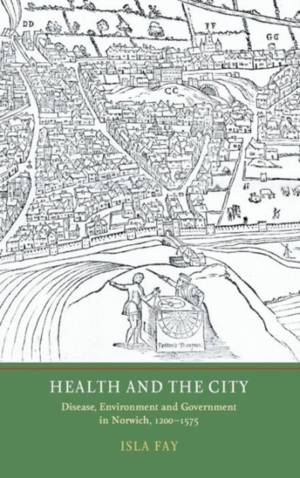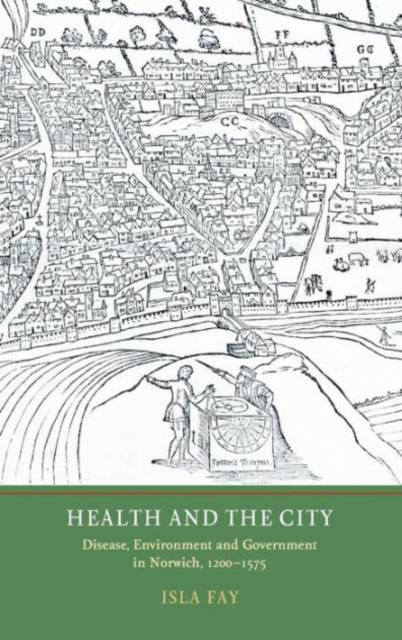
Bedankt voor het vertrouwen het afgelopen jaar! Om jou te bedanken bieden we GRATIS verzending (in België) aan op alles gedurende de hele maand januari.
- Afhalen na 1 uur in een winkel met voorraad
- In januari gratis thuislevering in België
- Ruim aanbod met 7 miljoen producten
Bedankt voor het vertrouwen het afgelopen jaar! Om jou te bedanken bieden we GRATIS verzending (in België) aan op alles gedurende de hele maand januari.
- Afhalen na 1 uur in een winkel met voorraad
- In januari gratis thuislevering in België
- Ruim aanbod met 7 miljoen producten
Zoeken
Health and the City
Disease, Environment and Government in Norwich, 1200-1575
Isla Fay
Hardcover | Engels
€ 177,45
+ 354 punten
Omschrijving
In 1559, William Cuningham MD published an image of a quintessentially healthy city. The source of his inspiration was Norwich, one of England's largest and wealthiest provincial boroughs. Though idealized, Cuningham's "map" fairly represented the municipalities' attempts to rebuild and improve the infrastructure. But his image also covered up many problems: Norwich in reality was pocked by decayed housing, deteriorating streets and polluted waterways, and was home to significant numbers of sick and impoverished residents. This book brings both viewpoints to life. Cuningham's particular brand of "environmental health" imitated ancient ideas (in particular the Hippocratic text Airs, Waters, Places), and drew upon astrology, the study of the weather, and local topography. The book shows that amongst the citizens, a complementary form of medical culture existed that put individuals under the spotlight. It included neighbourhood reactions to illness and disability; the responsibilities of the governing elite for sanitation; and judgments about the lifestyles of different members of the community. Hygiene from this perspective was not only about cleanliness, but also about behaviour, hierarchy, and property. The study draws together a wide range of source materials (including images, medical notebooks and objects, human remains, the corporation's archives, and civic ritual and drama), considering both high and low culture.
Specificaties
Betrokkenen
- Auteur(s):
- Uitgeverij:
Inhoud
- Aantal bladzijden:
- 276
- Taal:
- Engels
Eigenschappen
- Productcode (EAN):
- 9781903153604
- Verschijningsdatum:
- 16/04/2015
- Uitvoering:
- Hardcover
- Formaat:
- Genaaid
- Afmetingen:
- 156 mm x 234 mm
- Gewicht:
- 566 g

Alleen bij Standaard Boekhandel
+ 354 punten op je klantenkaart van Standaard Boekhandel
Beoordelingen
We publiceren alleen reviews die voldoen aan de voorwaarden voor reviews. Bekijk onze voorwaarden voor reviews.









